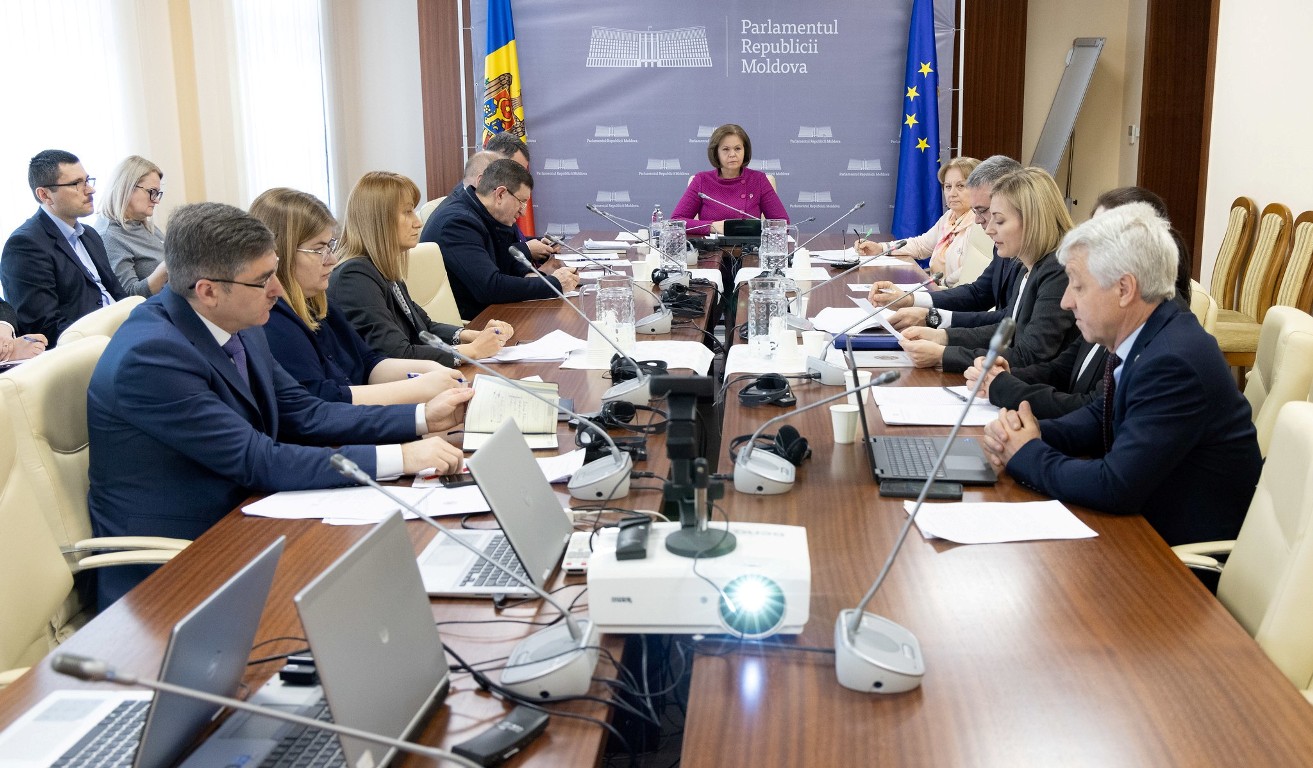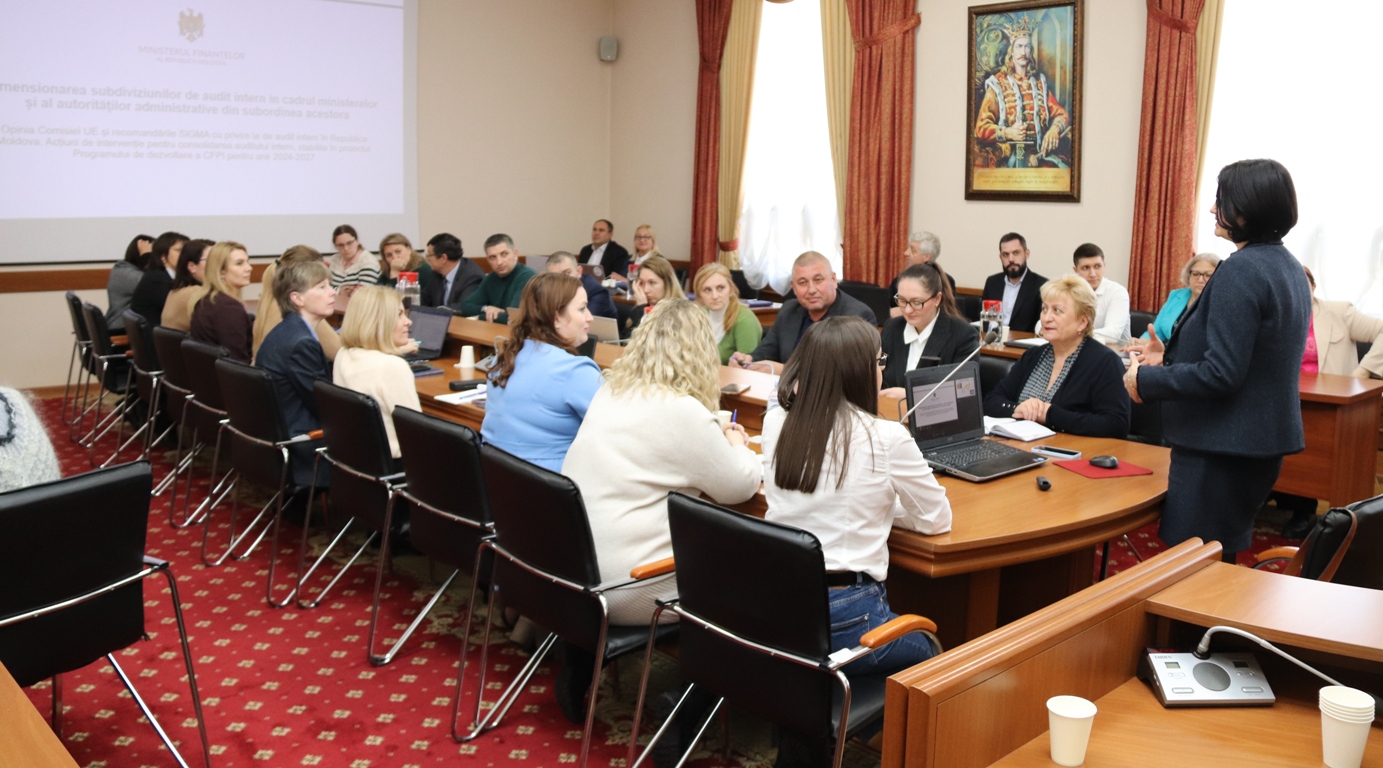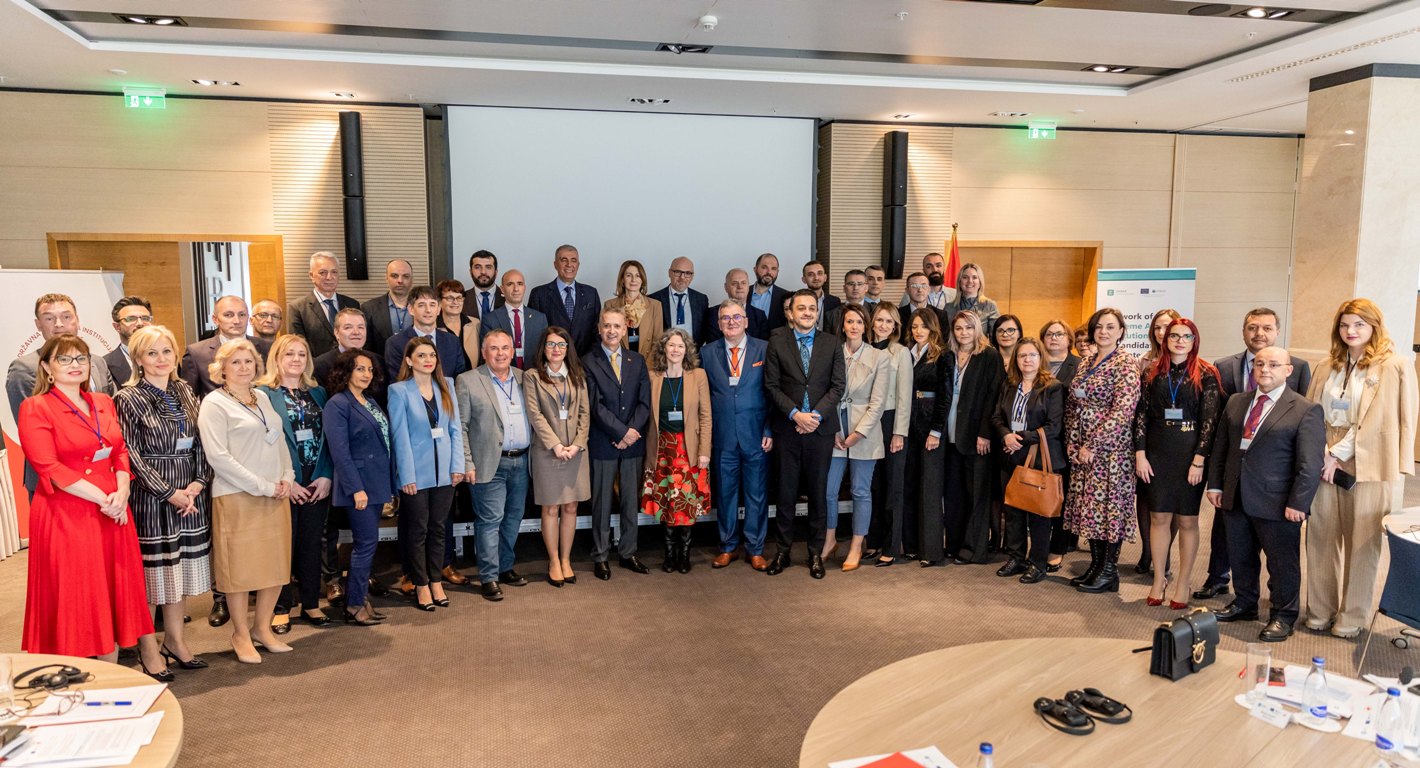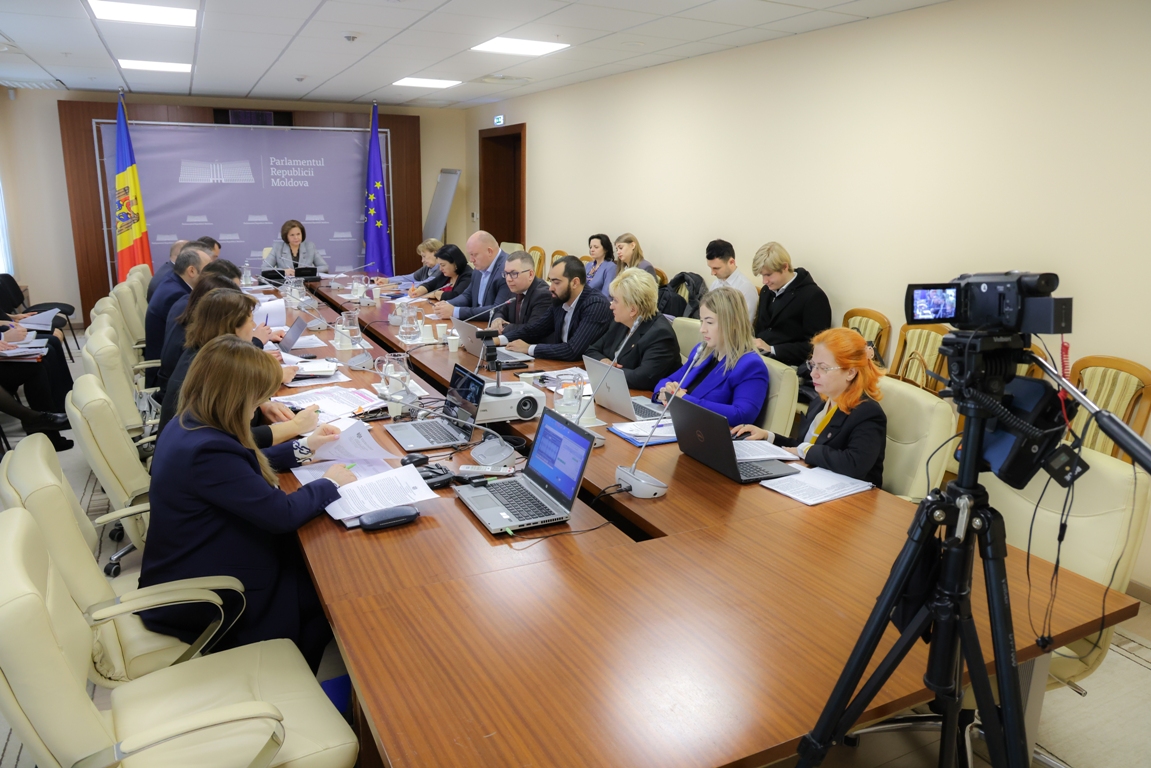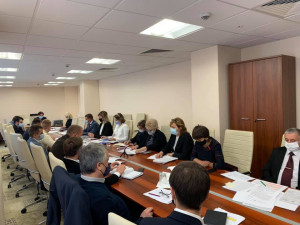.jpg)
On September 22, the Court of Accounts of the Republic of Moldova (CoARM) presented within the Parliamentary Committee for Control of Public Finances (PFCC), the results of two audit reports, namely, the Compliance Audit Report on the use of public financial resources allocated to the Service Prevention and Combating Money Laundering (SPCML) during 2018-2020, approved throughout the CoARM’S Decision no. 14 FROM April 23, 2021 and the Environmental Performance Audit Report in the field of plastic waste management, approved throughout the CoARM’s Decision no. 26 from June 21, 2021.
The auditors responsible for the audit engagement presented the main conclusions and observations of the compliance audit report.
The audit assessed the management by the Money Laundering Prevention and Combating Service during 2018-2020 of about 49.1 million lei, of which about 80% concern the work remuneration and contributions, the purchase of IT equipment and communal services. No significant deviations were found concerning these compartments.
The Court of Accounts found that the compliance of the use of the means allocated by the state budget for the Service was affected by:
- non-compliances in the use of the means allocated for the overhaul of the building,
- the deficiencies related to the process of delimitation and cadastral registration of the building under the management of the Service,
- the shortcomings in the systemic implementation and full reporting of the Internal Managerial Control.
The delay of the procedure for placing the Service in a new headquarters led to the registration of a very low level of the overall execution of expenditures in 2018 - of about 59.1% of the approved limits. Also, a series of irregularities were detected in the management of the means for the capital repair of the building, allocated in the amount of about 9.8 million lei. Thus, the Service purchased capital repair works of some constructions located on the ground (of about 1.4 million lei), which are not managed by it. The nominated constructions are under the management of the National Integrity Agency, according to the Government’s Decision.
There were stated situations of division of a public procurement, by concluding two separate public procurement contracts, and according to the audit opinion were created possible circumstances to favor a concrete bidder. Failure to comply with the contractual clauses, by excluding certain types of works and including others, not initially provided for in the contract, also influenced compliance concerning this chapter.
The compliance of the process of delimitation and cadastral registration of the building under the management of SPCML was affected by its non-registration in the Real Estate Register by the former owner, as well as by the lack of its cadastral plan.
The Court of Accounts has made recommendations to address gaps and mitigate potential risks, which could therefore affect the compliance of future activities and operations.
REPORT
With reference to the Environmental Performance Audit Report “Plastic Waste Management”, Andrei Munteanu, Member of the CoARM and the audit team informed the Parliamentary Committee about the most important findings of the report.
The Court of Accounts audited the environmental performance of plastic waste management in order to present the state of its national management system in the face of the future era of limiting plastic consumption, to identify areas at high risk of degrading environmental impact and to bring added value to the field by boosting the strengthening of managerial capacities in order to make decisions to improve and change things for the good of the citizen, with minimal impact on the environment.
The COVID-19 pandemic has amplified the potential impact associated with plastic pollution. Plastic products have played a significant role in protecting people during the pandemic. The widespread use of personal protective equipment has created a massive disruption of the management chain and waste disposal system. Millions of discarded disposable plastics (masks, gloves, aprons and toilet bottles) have been added to the terrestrial environment and could cause an unprecedented increase for waste.
The Court of Accounts notes that the results of this audit provide policy makers at European level with a useful source of reference for improving the Community framework and increasing the quality of life in an ecological way.
The current model of waste management in the Republic of Moldova is a simple and primitive one, and does not correspond either to the rigors of environmental protection nor to the principles of the circular economy, which has been the prerogative of the EU for many years. According to the experts, waste collection services exist mainly in urban areas, but here too the share of waste collected separately, sorted and sent for recycling is negligible.
On the territory of the Republic of Moldova annually are identified over 1200 unauthorized landfills, which accumulate mixed waste, the effect of which is negative. The lack of a qualitative record of the waste does not allow the audit the quantitative evaluation of the plastic ones among those disposed of in the landfills. However, according to statistical data, it was observed that the recycling rate of waste is very low, because about 90% of the waste generated is disposed of in landfills, and plastic, being bulky waste, occupies about 40% of total waste disposed of.
In terms of financing the sector, the audit identified the collection of taxes in the budget for environmental pollution and the management of authorized landfills, which reached 325 million lei in 2020. In this regard, there is uncertainty that unauthorized operators do not contributes to the financial recovery of the disastrous impact on the environment by eliminating mixed waste in unauthorized landfills. At the same time, importers of packaging, paying for pollution, contribute to the development of infrastructure for collection, recycling and destruction of waste. However, in that direction, out of 63 million lei (National Ecological Fund) no financial means in the audited period were directed.
It is also discouraging that the private sector, which recycles plastic waste, does not have high-performance equipment to treat such bags, as they require major investment, and without high-performance infrastructure these bags continue to be thrown away with other waste in landfills.
The audit observations reveal that the main vulnerabilities related to the quality assurance of plastic waste management in the Republic of Moldova are mainly related to:
- lack of clear and efficient mechanisms to put into operation the development of the integrated waste management system;
- the lack of interest of the government to provide financial support to the sector with responsibilities for the recovery of plastic waste;
- the lack of interest of the local public administration bodies in the development of the qualitative waste management system;
- failure to set up a separate waste collection system, including plastic;
- lack of cooperation with the private sector on promoting waste selection and separate collection;
- the application of incomplete measures regarding the restrictions on the placing on the market of plastic bags;
- ignoring regulations through standardization in terms of quality of biodegradable and compostable packaging;
Although waste pollution appears to have an invisible impact on health and the environment, the lack of crucial actions is a real cause for concern, especially in the absence of an integrated waste management system to ensure good coordination and functioning of both the institutional system and the environment, as well as pollution monitoring, information and accountability systems taking into account the situation in the field.
The gaps in the legal framework and the lack of inter-institutional cooperation delay the development of an integrated plastic waste management system, where plastic as waste has its place and its important role as a resource, whose economic value could be recovered and transformed into raw material.
 WITH DEFICIENCES OF VIEW
WITH DEFICIENCES OF VIEW Youtube
Youtube Facebook
Facebook


 print
print